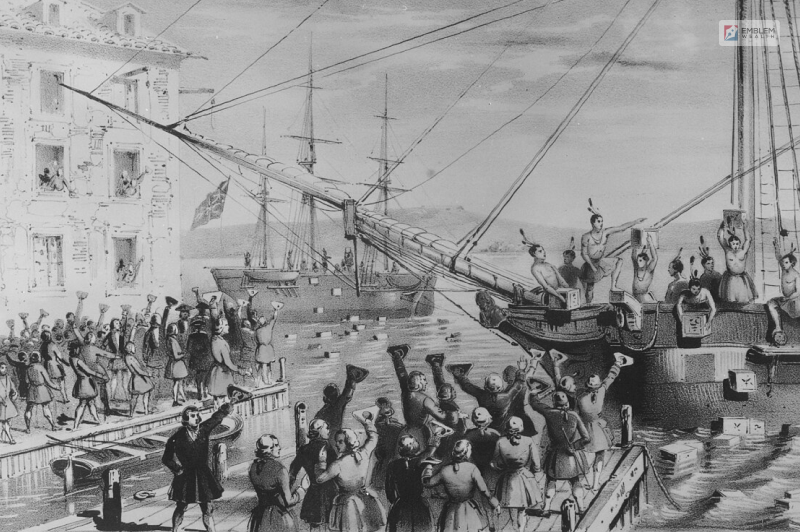What Does Taxation Without Representation Mean?

You might have known people who pay taxes just because they do not have representation anywhere in the government. That’s what taxation without representation consists of. The phrase has gained momentum in the U.S. due to its prominence in the country during British colonial rule.
It has its share of historical importance, which contributes to the momentum of the American Revolution. At present, taxation is important as a concept of democracy for any government.
This article covers a few facts about taxation having no representation. So, make sure to read it till the end and gain significant information.
A Brief History Of Taxation Without Representation
Although various cultures have been perpetrating this, the phrase came into being in the American culture during the 1700s. The American Revolution was mainly caused due to the consistent opposition to taxation without representation. Let’s have a quick look at what all happened:
- Colonists Were Triggered By The Stamp Act
It was in the 1760s that the British Parliament started taxing Americans seemingly. The idea was to regain the losses caused at the time of the Seven Years’ War from 1756-1763. Among these taxes, there was a despised tax that taxed colonial printers on their used or created documents for colonies.
They also had to prove the same by attaching an attested revenue stamp along with the documents. Those who violated were tried back and forth in the vice-admiralty court in the absence of juries. When peers denied the trial, it mostly affected the colonists’ minds.
- Revolts Faced Against The Act
As per the colonists, this tax was illegal as they did not have any representation in the Parliament. Moreover, they were denied trial rights in the presence of a jury. Delegates belonging to the ninth colony out of the 13 had a meeting in New York to establish the Stamp Act Congress.
It is also called the 1765’s Continental Congress. Some prominent colonials who had a meeting for continuous 8 days against taxation without representation were John Dickinson, John Rutledge, and William Samuel. The resolutions that were taken mainly focused on the loyalty of the delegates to the crown.
- What Happened After The Stamp Act?
The Stamp Act was a disaster as most of the petitions were completely ignored. However, boycotting the British imports and other economic pressures by them ultimately resulted in the Act’s repeal in the year 1766. After several years of tensions, finally, the American Revolution started on 19 April 1775.
It was on 7th June 1776 that Richard Henry Lee brought a resolution to the union. It declared that all the 13 colonies were now free from British rule. John Adams, Thomas Jefferson, and Benjamin Franklin were the foremost representatives to opt for the resolution.
How Does It Work?
As mentioned already, the idea of taxation without representation originated in the U.S. after a letter to Governor William Shirley by Benjamin Franklin. The letter read, “On the Imposition of Direct Taxes Upon the Colonies Without Their Consent.” It continued that people from the colonies who were excluded would be extremely dissatisfied.
The phrase was broadly used after a decade in the colonial’s reply to the imposition of the Stamp Act by the Parliament. This act was imposed on paper, different commodities as well as legal documents. Further, it also reduced the colonist’s rights, along with allowing trials without jury. However, it was repealed in the year 1766.
So, Is Imposing Taxation Without Representation Unlawful?
Coming back to the question, were the colonists right when they stated it was illegal to collect taxes without representation? Well, the answer can be a bit complicated. In ancient terms, taxing a colony without offering them political rights was illegal, as considered by oppressed people.
And I have already talked about how infuriated Americans were at this point in time. But the present situation in the Columbian District has a historical relation, too. During the creation of the national capital in 1787, all the constitutional framers were dedicated to building a district that would not be ruled by any state’s jurisdiction.
This was mostly done to prevent regional disputes in extremely sensitive areas, such as the national capital, after America gained its independence. However, after two centuries or so of independence, this law will no longer be needed. Nonetheless, it is a law- hence, its restriction cannot be called illicit.
Instances Where It Has Been Practically Implemented
Nothing describes the situation of being tax imposed by the government better than taxation without representation. Here are a few examples that show the use of this phrase in practical life:
Washington, D.C.
All through the history of America, several disenfranchised individuals, as well as groups, have been criticized just because they have been taxed without representation. A classic example of it is Washington, D.C., where the district residents pay federal taxes, although the Columbian district has no power to vote in Congress.
Since the Columbian district is not a state, it passes a non-voting delegate to the American House of Representatives. The delegates have all the right to draft legislation, but they cannot vote.
Black Men’s Liberty
Most parts of the 19th century consisted of Black men complaining that they were imposed taxation without representation. Also, they filed a petition to the government regarding tax exemptions as they received them in certain cases.
There were other states, too, that chose not to use race as a metric to vote. It was in the 15th Amendment that it became unconstitutional to avoid the right of a citizen to vote based on race.
Women
The right of a citizen, irrespective of their sex, was made constitutional in the 19th Amendment. Before the ratification of this amendment, a lot of U.S. women appealed that they were taxed without representation. Take, for instance, Susan B. Anthony, who asked whether or not it is a crime for the United States Citizen to vote.
Women of the state were utterly dissatisfied with such a form of government that left no stone unturned in exercising taxation with no representation.
Concluding Words…
Taxation without representation is exactly like arranging a family dinner and not getting invited. The only difference is those falling victim to such taxation are not represented in Congress. It might come as bad news, but in some parts of Washington, D.C., you might still have to pay the federal income tax.
So, this was all about getting taxed but not getting any recognition. I hope this article walked you through the necessary aspects and cleared all your doubts. Don’t forget to share your precious comments below.
Continue Reading:

























Leave A Reply